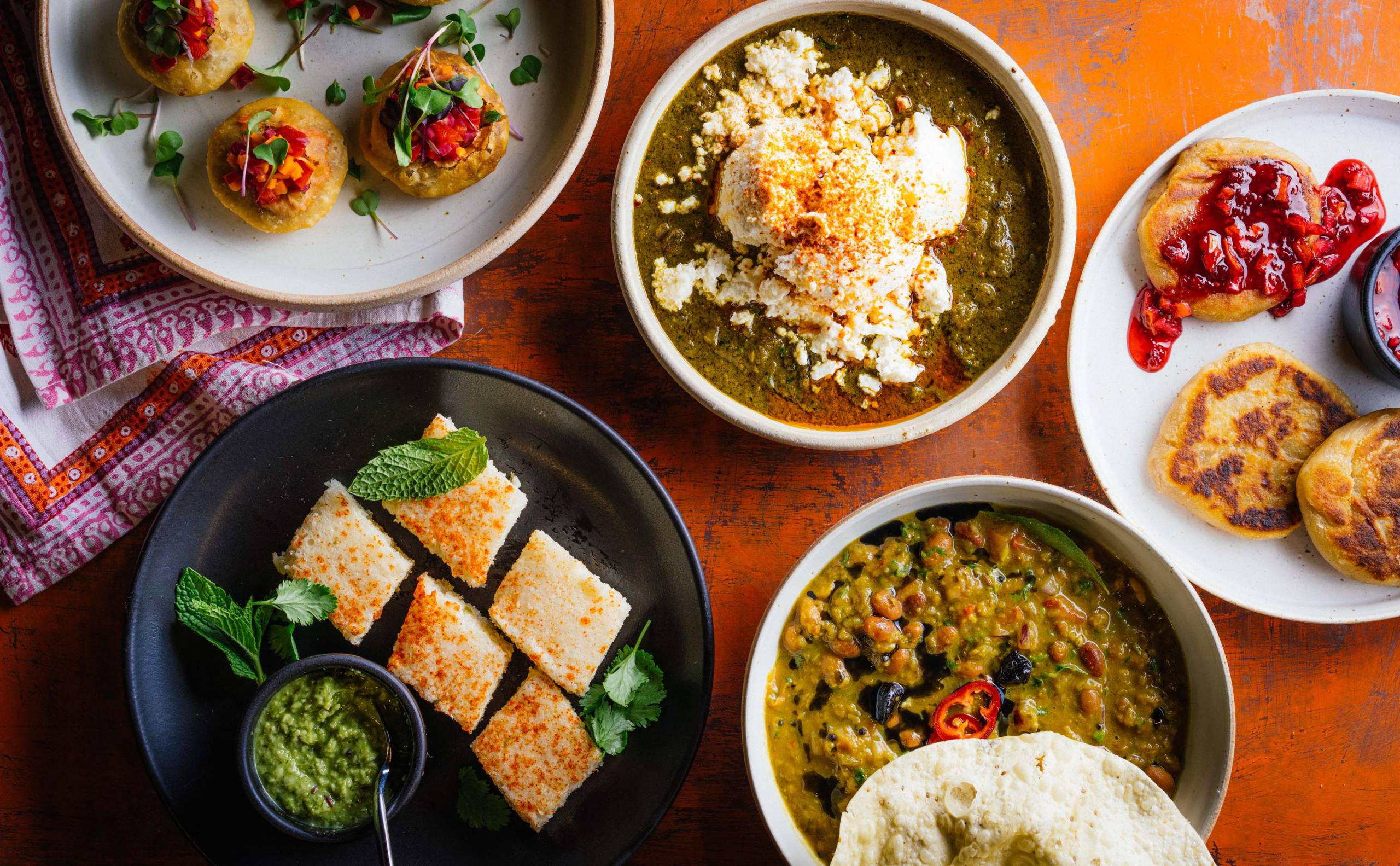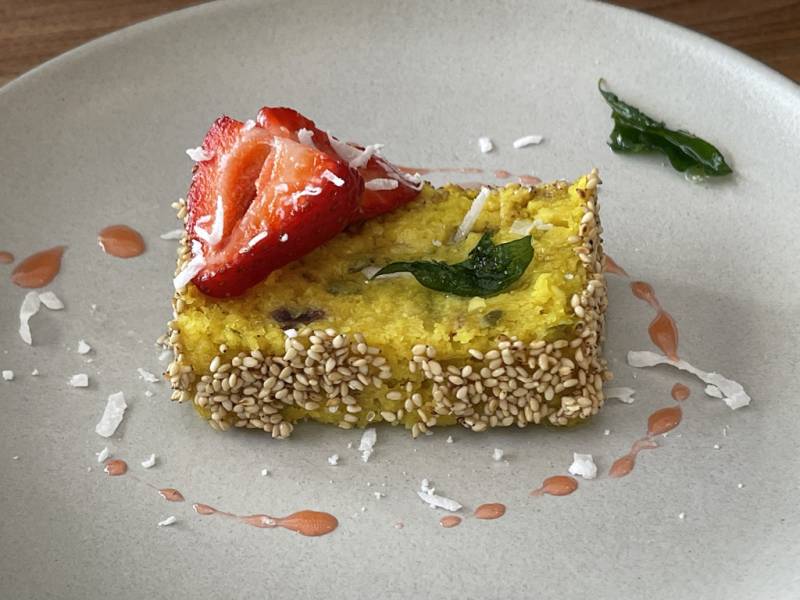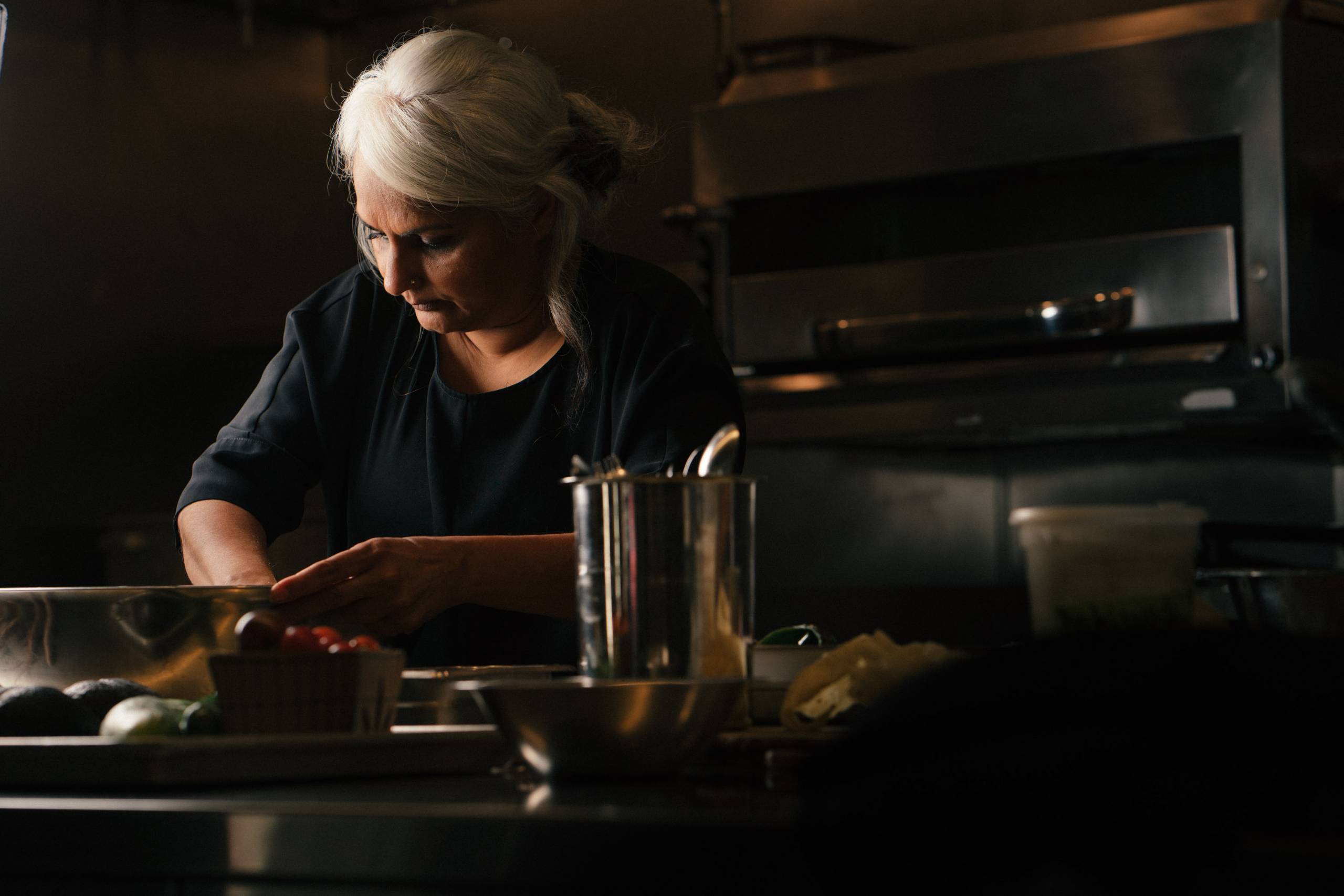When she was a young girl growing up in Gujarat, India, Diwali was one of Heena Patel’s favorite times of year. She relished the ritual of getting the house sparkling clean a month ahead of the holiday, and loved the music, the folk dancing and the diyas (oil lamps) lit up spectacularly to celebrate this so-called “Festival of Lights.” It was like Thanksgiving, Christmas and New Year’s all wrapped into one, Patel recalls.
And of course there was food. Now the chef and owner of Besharam, a Gujarati-inspired restaurant in San Francisco’s Dogpatch district, Patel remembers that her mother would arrange an extravagant meal for each night of the five-day festival. “For me, I have one day,” she says, laughing. “I want to serve so many things.”
Still, the chef will pack as much holiday nostalgia as she can into that one day—an elaborate $95, all-vegetarian four-course Diwali prix fixe that she’ll host at Besharam on Thursday, Nov. 4. With its intricately spiced stews and sweet and savory lentil cakes, it’s a meal that’s steeped in Patel’s own memories of the holiday.

What Patel remembers most was the abundance of snacks and sweets that her mother filled the house with each year. She’d prepare ghughara, a kind of fried, semolina-filled pastry sweetened with sugar and dried fruits. In order to make mathiyas—an especially delicious, papadam-like cracker eaten during Diwali—she would use a silk thread from her sari, stretched tight in between her teeth, to cut the raw dough, which is notoriously sticky and difficult to work with.
“Those memories are stuck in my vision,” Patel says.



